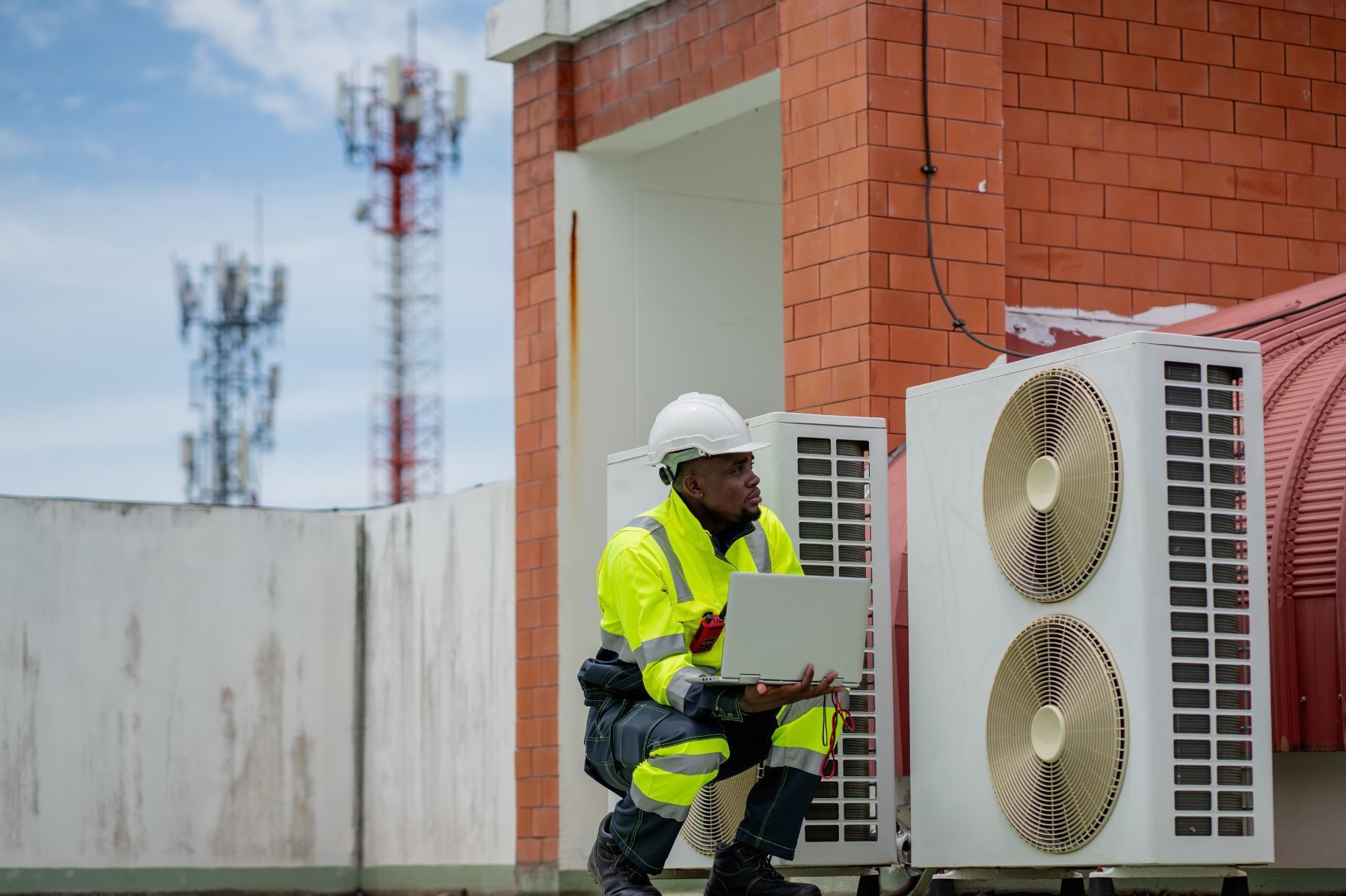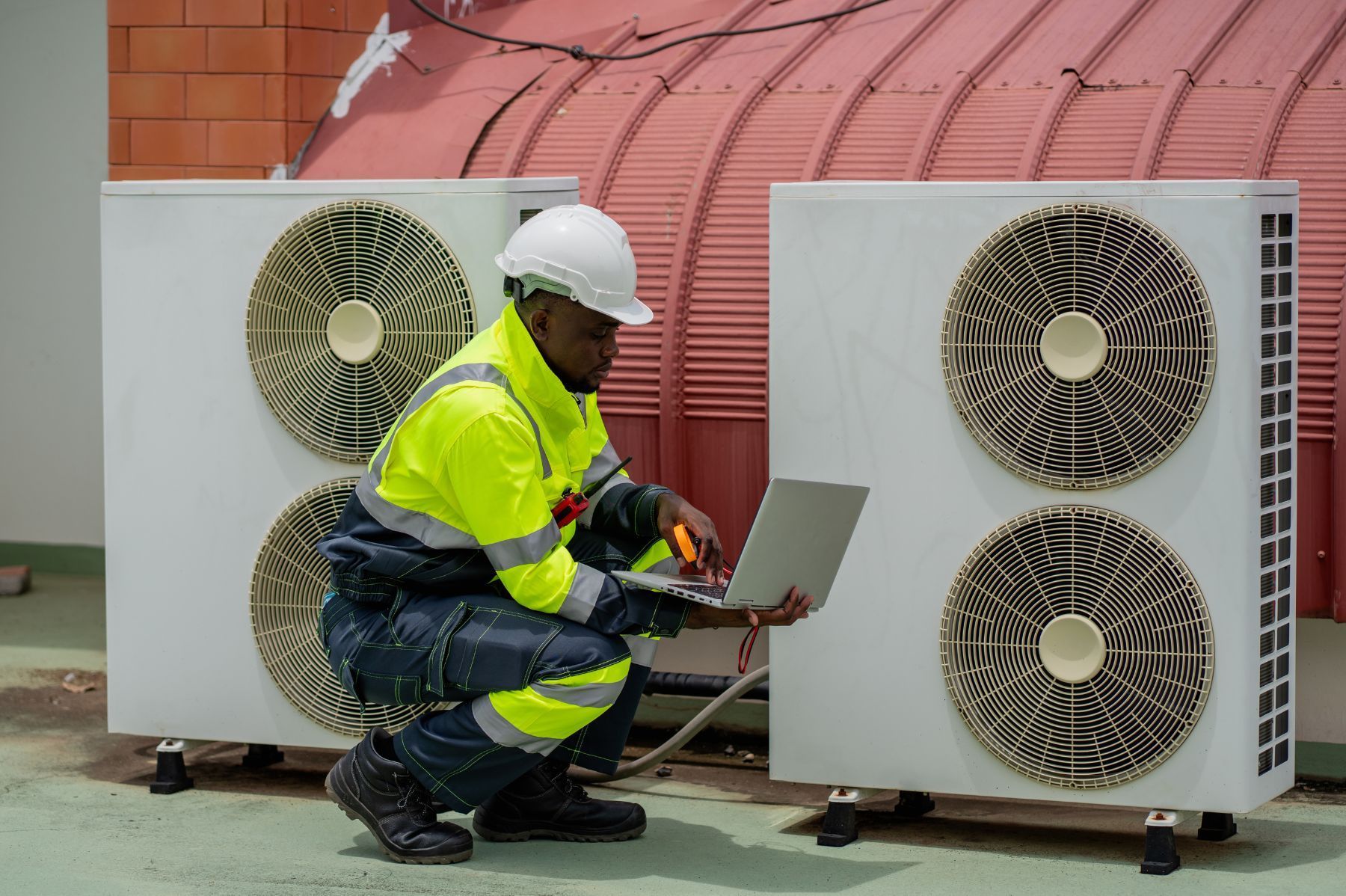HVAC License and Bond Requirements by State in 2025
See How We're Different
or call us: (469) 678-8001

Securing the right license and bond is a crucial step for HVAC contractors aiming to operate legally and confidently across the United States. Each state sets its own rules, often involving specific bond amounts, insurance mandates, and exams designed to ensure contractors meet professional standards and protect consumers. Understanding these requirements can be complex, but it is essential for avoiding costly penalties and building trust with clients.
For a detailed look at state-specific licensing rules, the Air Conditioning Contractors of America (ACCA) interactive map is an excellent resource that breaks down the nuances by state.
Licensing and Bonding Basics for HVAC Contractors
Before diving into state-specific requirements, it helps to clarify what licensing and bonding mean in the HVAC industry. A license certifies that a contractor has met minimum standards, including passing exams and demonstrating experience. Bonds, on the other hand, act as financial guarantees. They protect customers and the state by ensuring contractors fulfill their contractual and legal obligations.
Bond amounts vary widely depending on the state and sometimes the scale of the work. For example, bonds can range from a few thousand dollars to tens of thousands, reflecting the risk level and regulatory environment. Contractors should also be aware of insurance requirements, which often accompany licensing rules to cover liability and worker protection.
In addition to the basic licensing and bonding requirements, HVAC contractors must stay informed about continuing education and training mandates that many states impose. These requirements ensure that contractors remain up-to-date with the latest technologies, safety protocols, and industry standards. This ongoing education can include topics such as energy efficiency, refrigerant handling, and new installation techniques, which are crucial as the HVAC industry evolves to meet modern demands.
Furthermore, the importance of local regulations cannot be overstated. Different municipalities may have their own specific codes and permits that HVAC contractors must adhere to. This can include zoning laws, environmental regulations, and building codes that dictate how systems should be installed and maintained. Understanding these local nuances is essential for contractors to avoid penalties and ensure that their work is compliant with all applicable laws, ultimately safeguarding their business reputation and customer trust.
Notable State Requirements and Bond Amounts
California: Comprehensive Exams and Strong Bonding
California stands out for its rigorous licensing process. HVAC contractors must pass three exams covering trade skills, laws, and asbestos handling, ensuring they are well-prepared for the complexities of the job. Alongside these exams, California requires a $25,000 bond to secure a license through the Contractors State License Board (CSLB). This bond amount is among the highest in the country, reflecting the state's strict regulatory environment.
Additionally, contractors must provide a $15,000 bond specifically tied to HVAC work, which underscores the importance of financial responsibility in this market. These requirements help maintain high standards and protect consumers from subpar work or financial disputes. More details on California’s licensing can be found through Next Insurance and ZERO HVAC Technologies.
Moreover, California's emphasis on environmental regulations means that HVAC contractors must also be knowledgeable about energy efficiency standards and green technology. This focus on sustainability not only enhances the quality of service but also aligns with the state’s commitment to reducing carbon emissions. Contractors are encouraged to stay updated on the latest technologies and practices to remain competitive in this evolving market.
Arizona: Flexible Bonding Based on Work Volume
Arizona takes a more flexible approach by adjusting bond amounts according to the contractor’s anticipated volume of work. The bond can range from $2,500 to $50,000, allowing smaller contractors to start with lower financial commitments while scaling up as their business grows. This tiered system balances regulatory oversight with practical business realities.
Contractors in Arizona should carefully estimate their work volume to determine the appropriate bond level. This approach encourages compliance without imposing unnecessary burdens on smaller operations. For more information, the Surety Bond Professionals website offers detailed guidance on bond amounts and licensing procedures.
In addition to bonding requirements, Arizona also mandates that contractors complete continuing education courses to keep their licenses active. This ensures that HVAC professionals remain informed about the latest industry standards, safety protocols, and technological advancements. By fostering a culture of ongoing learning, Arizona aims to enhance the quality of HVAC services across the state.
Texas: High Liability Insurance Requirements
Texas requires HVAC contractors to carry significant liability insurance, mandating $300,000 per occurrence and $300,000 aggregate coverage. This ensures that contractors can cover damages or injuries that might occur during their work, protecting both clients and the contractor’s business.
While Texas does not specify bond amounts as high as some other states, the insurance requirements are among the most stringent. This focus on liability coverage reflects the state’s emphasis on risk management and consumer protection. More on Texas licensing and insurance can be found at HVAC School.
Furthermore, Texas has a vibrant HVAC market, driven by its diverse climate and growing population. Contractors are often required to be well-versed in both heating and cooling systems to meet the varying demands of residential and commercial clients. This versatility not only enhances job prospects for HVAC professionals but also encourages them to adopt innovative solutions that improve energy efficiency and customer satisfaction.
South Carolina: Conditional Bonding Based on Project Cost
In South Carolina, HVAC contractors must provide a $10,000 surety bond if the cost of construction exceeds $5,000. This conditional requirement means smaller projects may not trigger bonding, but larger jobs require contractors to demonstrate financial responsibility upfront.
This threshold helps balance regulatory oversight with business practicality, ensuring that significant projects have adequate protections in place. Contractors working on larger commercial or residential HVAC installations should be especially mindful of this rule. The HVAC School offers more insight into South Carolina’s licensing and bonding specifics.
Additionally, South Carolina has been increasingly focusing on energy efficiency and environmental sustainability in recent years. Contractors are encouraged to stay informed about state incentives for energy-efficient installations and to consider incorporating eco-friendly practices into their services. This not only helps contractors comply with regulations but also appeals to a growing number of environmentally conscious consumers looking for sustainable HVAC solutions.
Insurance and Workers’ Compensation Requirements
Virginia: Workers’ Compensation for Larger Crews
Virginia requires HVAC contractors with three or more employees to carry workers’ compensation insurance. This coverage protects employees in case of workplace injuries and ensures compliance with state labor laws. The importance of this insurance cannot be overstated, as it not only safeguards the well-being of workers but also shields employers from potential lawsuits stemming from workplace accidents. In an industry where physical labor and exposure to hazardous conditions are common, having this insurance is a critical component of risk management.
Smaller contractors with fewer than three employees may not need to carry this insurance, but it is often advisable to do so for additional protection. This requirement highlights the importance of understanding not only bonding and licensing but also insurance obligations that vary by state. For detailed information, Next Insurance provides a helpful overview of Virginia’s rules. Additionally, contractors should consider the long-term benefits of investing in comprehensive insurance coverage, as it can enhance their credibility with clients and provide peace of mind in the face of unforeseen incidents.
Alabama: Recent Fee Increases and Licensing Updates
In Alabama, the Board of Heating, Air Conditioning, and Refrigeration Contractors recently increased exam, licensing, and renewal fees as of October 14, 2024. While bond amounts remain stable, contractors should budget for these higher costs when planning their licensing expenses. The adjustments reflect the board's commitment to maintaining high standards in the HVAC industry, ensuring that only qualified professionals are licensed to operate. As the demand for skilled HVAC technicians continues to grow, staying informed about these changes is crucial for maintaining a competitive edge.
Keeping up with fee changes is essential to avoid delays or lapses in licensure. The Alabama Board’s official newsletter provides the latest updates and guidance for HVAC professionals operating in the state. Check the Alabama Board newsletter for current details. Moreover, contractors should also be aware of any additional training or continuing education requirements that may accompany these fee increases, as staying compliant not only helps in retaining licensure but also enhances one's skills and knowledge in an ever-evolving industry.
Comparing Bond and Insurance Requirements Across States
Understanding how bond and insurance requirements differ can help HVAC contractors prepare for multi-state operations or relocation. The table below summarizes key bond and insurance mandates in select states for 2025:
| State | Bond Amount | Insurance Requirements | Additional Notes |
|---|---|---|---|
| California | $25,000 bond + $15,000 HVAC-specific bond | Trade, law, and asbestos exams required | Strict exam and bonding rulesanne.evans@mail.com |
| Arizona | $2,500 to $50,000 based on work volume | Varies by contractor size | Flexible bond amounts |
| Texas | Not specified | $300,000 per occurrence and aggregate liability insurance | High liability insurance mandate |
| South Carolina | $10,000 if project cost exceeds $5,000 | Standard licensing | Conditional bonding based on project size |
| Virginia | Standard licensing | Workers’ compensation insurance if 3+ employees | Insurance tied to crew size |
| Alabama | Standard bonding | Licensing and renewal fee increases in 2024 | Recent fee hikes |
Each state has unique requirements that reflect its regulatory environment and the level of protection it seeks to provide to consumers. For instance, California's stringent bonding and examination requirements are designed to ensure that only qualified professionals enter the HVAC market, thus safeguarding public health and safety. This is particularly important in a state that experiences a wide range of climate conditions, necessitating reliable heating and cooling systems. On the other hand, Arizona's flexible bonding amounts allow contractors to scale their financial commitments based on their operational size, making it easier for small businesses to enter the market without prohibitive upfront costs.
In Texas, the absence of a specified bond amount coupled with a high liability insurance requirement reflects the state's emphasis on protecting consumers from potential damages resulting from HVAC work. This approach can be seen as a double-edged sword; while it ensures that contractors are adequately insured, it may also deter smaller companies that struggle to meet the high insurance premiums. Meanwhile, states like South Carolina and Virginia have tailored their requirements to consider project size and workforce, respectively, which can help streamline the licensing process for contractors and promote fair competition in the industry.
Why Meeting These Requirements Matters
Failing to comply with state licensing and bonding requirements can lead to severe consequences. Contractors risk fines, license suspension, or even legal action. Beyond regulatory penalties, unlicensed or under-bonded contractors may struggle to win clients who demand proof of professionalism and financial responsibility. In a competitive market, having the proper credentials not only enhances a contractor's reputation but also serves as a critical differentiator when potential clients are choosing between multiple service providers. Clients are more likely to trust and hire contractors who can demonstrate their compliance with industry standards and regulations.
Moreover, bonds and insurance protect contractors from financial losses related to claims, accidents, or disputes. For example, a surety bond can cover customer damages if a contractor fails to complete a job or violates contract terms. Liability insurance safeguards against injury or property damage claims, which are common in HVAC work. These protections are not just a safety net; they also provide peace of mind, allowing contractors to focus on their work without the constant worry of potential financial repercussions. Additionally, many clients view these protections as a sign of a contractor's commitment to quality and accountability, further solidifying trust in their services.
Understanding and investing in the right coverage is a smart business move that builds trust and stability. Resources like the ACCA’s licensing map help contractors navigate this complex landscape with confidence. Furthermore, staying informed about changes in regulations and industry standards is crucial for long-term success. Engaging with professional organizations, attending workshops, and participating in industry forums can provide valuable insights and updates, ensuring that contractors remain compliant and competitive. By prioritizing these requirements, contractors not only protect their businesses but also contribute to the overall integrity and professionalism of the HVAC industry.
Frequently Asked Questions
Q: Do all states require HVAC contractors to have a surety bond?
A: Most states require some form of bonding, but the amount and conditions vary widely. Some states tie bond amounts to project size or business volume.
Q: Can I work as an HVAC contractor in multiple states with one license?
A: Generally, HVAC licenses are state-specific. Contractors must meet each state’s licensing and bonding requirements separately.
Q: What happens if I do HVAC work without the proper license or bond?
Penalties can include fines, license suspension, and legal liability. It also risks losing client trust and business opportunities.
Q: Is workers’ compensation insurance mandatory for all HVAC contractors?
It depends on the state and the number of employees. For example, Virginia requires it if you have three or more employees.
Q: How often do HVAC licensing fees and bond requirements change?
Changes occur periodically. For instance, Alabama increased fees in October 2024. Staying updated with state boards is essential.
Q: Are there exams required to get an HVAC license?
Many states require exams covering trade knowledge, laws, and safety. California, for example, requires trade, law, and asbestos exams.
Q: Where can I find reliable information about HVAC licensing in my state?
The Air Conditioning Contractors of America (ACCA) provides an interactive map with state-specific licensing details, which is a trusted resource.











